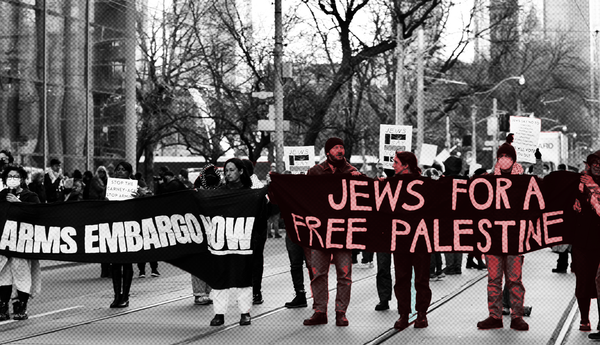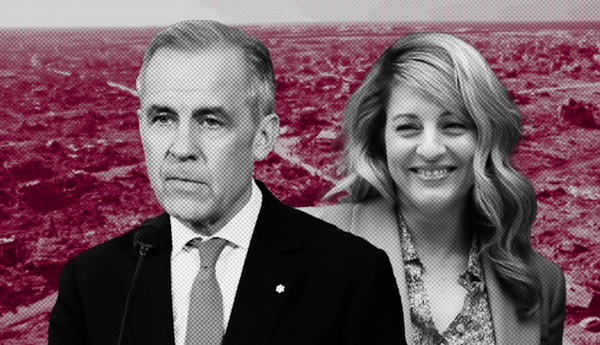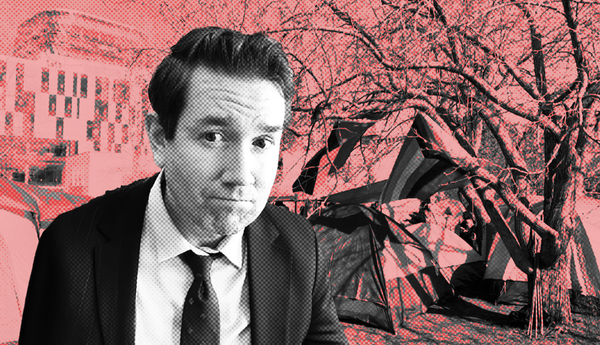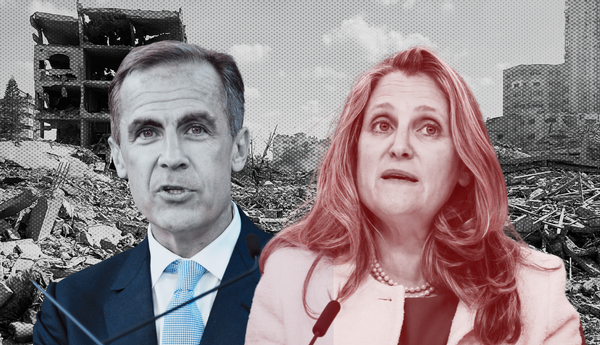Canada’s major federal parties are pleading ignorance and pointing fingers at each other after MPs from all parties gave a standing ovation to a Waffen SS veteran in Parliament last Friday.
As part of Ukrainian President Volodomyr Zelensky’s recent visit to Canada, House Speaker Anthony Rota introduced Yaroslav Hunka during a speech to the Commons. Rota said:
“We have here in the chamber today a Ukrainian Canadian war veteran from the Second World War who fought for Ukrainian independence against the Russians and continues to support the troops today even at his age of 98 […] I am very proud to say that he is from North Bay and from my riding of Nipissing—Timiskaming. He is a Ukrainian hero and a Canadian hero, and we thank him for all his service. Thank you.”
Critics pointed out that the information Rota gave in his introduction of the veteran would have placed Hunka on the side of Adolf Hitler’s forces, a fact that the critics said should have been clear to anyone with a basic knowledge of the Second World War. Despite this, every MP present in the House of Commons appeared to stand up and applaud the veteran.
Those applauding included Deputy Prime Minister and Finance Minister Chrystia Freeland, whose grandfather was a Nazi collaborator and propagandist in occupied Poland during the Second World War.
After the tribute in Parliament, The Forward reported that Hunka had specifically volunteered to fight with the Nazis’ Waffen SS 14th Grenadier Division in Ukraine. Formed in 1943, the group is linked to the massacres of Jewish and Polish civilians, with the unit’s officers and commanders personally taking part in mass execution campaigns. As noted by The Forward, subunits of the division committed the Huta Pieniacka massacre, during which the Nazi collaborators burned 500 to 1,000 Polish villagers alive.
Members of the SS division were cleared of war crimes by the 1986 Commission of Inquiry on War Criminals in Canada, but that ruling was excoriated as a “whitewash” by historians. Monuments honouring the unit still exist in Edmonton and Oakville to this day.
An autobiographical blog post written by Hunka in 2011 says he gladly volunteered to join the SS unit in 1943, with accompanying photographs reportedly showing him taking part in artillery training at a location visited by SS leader and Nazi war criminal, Heinrich Himmler.
After Jewish groups and other advocates expressed outrage at last week’s standing ovation for Hunka in the House of Commons, Rota issued an apology, stating on Sunday:
“I have subsequently become aware of more information which causes me to regret my decision to [introduce Hunka] [...] I particularly want to extend my deepest apologies to Jewish communities in Canada and around the world. I accept full responsibility for my actions.”
Rota stressed that, “I wish to make clear that no one, including fellow parliamentarians and the Ukraine delegation, was aware of my intention or of my remarks before I delivered them.”
Following that statement, Liberal MPs and ministers piled the blame entirely on Rota, and lambasted Conservative MPs for politicizing the incident. The Prime Minister’s Office promptly stated: “No advance notice was provided to the Prime Minister’s Office, nor the Ukrainian delegation, about the invitation or the recognition.”
However, the Trudeau government’s claim that it knew nothing in advance about Hunka’s appearance was thrown into doubt after pictures posted by Hunka’s family that appeared to show the veteran waiting for a meeting with Trudeau and Zelenskyy surfaced on social media.
Conservative MPs, all of whom appeared to clap for the Nazi war veteran in the Commons, laid the blame squarely at the feet of Prime Minister Justin Trudeau in a series of partisan attacks. Conservative MP Melissa Lantsman tweeted: “The Liberal Government should explain why [Hunka] was invited and honoured.”
Conservative Party Leader Pierre Poilievre, who was seen applauding the SS veteran after Rota’s introduction, suggested that he and other Parliamentarians could have had no clue about Hunka’s role in the Second World War, despite being told that the veteran fought against Russia (which was on the side of the Allies).
Poilievre tweeted:
“No parliamentarians (other than Justin Trudeau) had the opportunity to vet this individual’s past before he was introduced and honoured on the floor of the House of Commons. Without warning or context, it was impossible for any parliamentarian in the room (other than Mr. Trudeau) to know of this dark past.”
Writer David Moscrop replied: “[...] the context was the speaker introduced him [as] a soldier who fought against the Soviets during the Second World War. Did you think there was a secret third side?”
NDP MP Charlie Angus largely echoed the Liberal Party’s line, placing the blame on Rota and accusing Conservatives of trying to use the incident for partisan gain. Angus tweeted: “The speaker’s decision to recognize a potential Nazi collaborator was a serious mistake. But I am concerned how Conservatives […] are trying to exploit this to score partisan points.”
In a statement, NDP Leader Jagmeet Singh stressed that Hunka “was not a guest of the NDP” and similarly insisted that his party knew nothing about the SS collaborator’s wartime record.
“New Democrats will be raising our concerns about how this was allowed to happen with the government directly,” he added.







